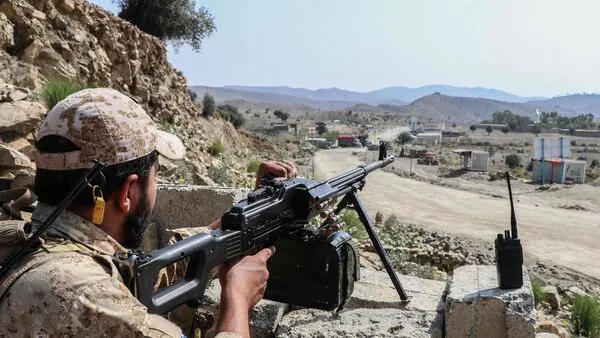
Pakistan Says Taliban Backtracked On Anti-Terror Pledges As Talks With Afghanistan Collapse In Turkiye
The four-day negotiations, held in Turkiye and facilitated by Ankara, brought together senior officials from Pakistan and Afghanistan in an effort to find common ground on the escalating border violence. However, the dialogue ended without consensus.
Pakistan's Minister for Information and Broadcasting, Attaullah Tarar, confirmed the failure of the discussions on Wednesday, stating on social media that“the dialogue thus failed to bring about any workable solution.”
Also Read | Trump showers praise on 'great people' Asim Munir, Shehbaz SharifHe added that Pakistan had“long sought cooperation from Kabul against militants targeting the country,” but the Afghan side“backtracked on its written commitments” under the Doha Agreement.
What are Pakistan's allegations against the Taliban regime?Tarar said that since the Taliban's return to power in 2021, Islamabad has repeatedly engaged the regime on curbing the activities of anti-Pakistan groups operating from Afghan soil.
However, he claimed that“Pakistan's fervent efforts proved futile due to the Afghan Taliban Regime 's unabated support to anti-Pakistan terrorists.”
He accused Kabul of thriving on instability, saying the Taliban“bears no responsibility towards the people of Afghanistan and thrives on a war economy,” adding that it“desires to drag and mire the Afghan people into a needless war.”
Also Read | PAK-AFG Clash: How The Durand Line Became Pakistan's Most Dangerous Frontier“Pakistan has always desired, advocated and immensely sacrificed for peace and prosperity for the people of Afghanistan,” Tarar continued, lamenting that“they have always remained indifferent to Pakistan's losses.”
He said Islamabad had provided“sufficient and irrefutable evidence” of terrorist activity during the talks - evidence that was acknowledged by the Afghan delegation and host countries - but“the Afghan side gave no assurances.”
“The Afghan side kept deviating from the core issue, evading the key point upon which the dialogue process was initiated. Instead of accepting any responsibility, the Afghan Taliban resorted to a blame game, deflection, and ruses,” Tarar said.
What has been Pakistan's response to the impasse?Despite the diplomatic setback, Pakistan reiterated its resolve to protect its citizens from militant violence. Tarar emphasised that“the security of its people is of paramount importance to Pakistan.”
Defence Minister Khawaja Asif echoed this stance in an interview with Geo News, revealing that the Afghan negotiators had repeatedly backpedalled during the dialogue.“Whenever we got close to an agreement - either in the last four days or last week - when negotiators reported to Kabul, then there was intervention and the agreement was withdrawn,” he said.
Asif went further, alleging that India had influenced the Afghan side, calling Kabul“a tool for Delhi.”
Also Read | Pakistan, Afghanistan no longer part of World Bank's South Asia regionSecurity sources in Pakistan also confirmed that the country would“continue to take all possible measures necessary to protect our people from the menace of terrorism” and pledged to“employ all the resources required to decimate the terrorists, their sanctuaries, their abetters and supporters.”
What role did Turkiye and Qatar play?Pakistan thanked its diplomatic partners - particularly Qatar and Turkiye - for facilitating the talks.“We joined the talks in Doha and later Istanbul to give peace a chance, acting on the request of brotherly countries,” Tarar noted, while expressing regret that the Afghan side had“failed to act in good faith.”
The collapse of the dialogue marks another setback for regional counterterrorism cooperation, as Pakistan grapples with a surge in cross-border attacks it attributes to groups sheltering in Afghanistan.
(With agency inputs)
Key Takeaways- The collapse of talks signifies ongoing tensions between Pakistan and the Taliban regarding counterterrorism efforts. Pakistan blames the Taliban for failing to act on commitments made under the Doha Agreement. Regional stability continues to be jeopardized by cross-border terrorism and lack of cooperation.
Legal Disclaimer:
MENAFN provides the
information “as is” without warranty of any kind. We do not accept
any responsibility or liability for the accuracy, content, images,
videos, licenses, completeness, legality, or reliability of the information
contained in this article. If you have any complaints or copyright
issues related to this article, kindly contact the provider above.

















Comments
No comment